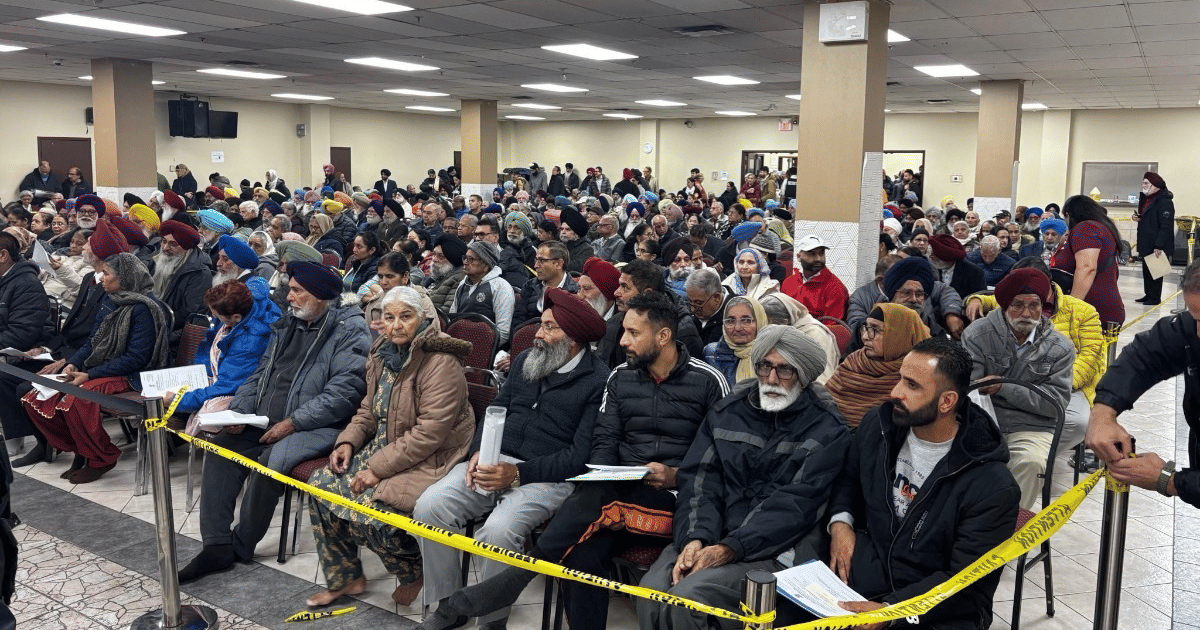 |
|
The escalating tensions between pro-Khalistan groups and Indian consular activities in Canada reached a critical juncture with a recent court ruling. A Superior Court judge in Ontario granted an injunction to protect the Lakshmi Narayan Mandir in Toronto from protests within a 100-meter radius during a crucial consular camp scheduled for November 30th. This decision underscores the severity of the threats faced by Indian diplomatic missions in Canada and highlights the growing concerns regarding the safety and security of Indian citizens residing in the country. The temple's management sought the injunction, citing concerns about the safety and security of attendees, particularly elderly individuals who rely on the annual consular camp for essential services like obtaining life certificates. The court's decision was not based solely on the potential for physical violence, but also acknowledged the significant psychological harm caused by intimidation and the disruption of religious practices. The judge's emphasis on the impact of intimidation on elderly attendees reveals a deep understanding of the vulnerability of this specific group and the broader societal impact of such actions.
The pro-Khalistan movement, advocating for the creation of a separate Sikh state in India, has become increasingly assertive in Canada. Groups such as Sikhs for Justice (SFJ) have openly called for protests against India’s consulate, escalating the risk to those involved in consular activities. The timing of the court's intervention is particularly significant given the recent violent intrusion at the Hindu Sabha Mandir in Brampton on November 3rd. This incident, which resulted in arrests and increased security measures, clearly demonstrated the capacity for violence and the need for proactive measures to protect religious sites and Indian diplomatic interests. The court's injunction, therefore, serves as a crucial step in preventing further escalation and ensuring the safety and security of those attending the consular camp. The order specifically targets intimidation, interference with temple access, and unauthorized entry, with clear instructions for law enforcement agencies to enforce compliance through arrests and removals of violators. This assertive response sends a strong message that such actions will not be tolerated.
The court's decision has broader implications for the ongoing relationship between India and Canada, particularly concerning the security of Indian diplomatic missions and the well-being of the Indian diaspora. The annual consular camps are a vital service for many Indian pensioners living in Canada, providing access to essential documentation and support. Disrupting these camps not only impacts individuals but also undermines the diplomatic relationship between the two countries. The fact that this injunction was necessary highlights a failure on the part of law enforcement to effectively deter previous acts of intimidation and violence. The involvement of multiple law enforcement agencies, including the Toronto Police and Ontario Provincial Police, demonstrates the seriousness with which the threat is being taken. The broader context of rising concerns about the safety of Indian consular activities in Canada necessitates a comprehensive review of security protocols and a proactive approach to addressing the root causes of the escalating tensions between pro-Khalistan groups and the Indian diaspora. The events surrounding the Lakshmi Narayan Mandir highlight the urgent need for a multi-faceted strategy to ensure the safety and security of Indian citizens and institutions in Canada, while upholding the principles of freedom of speech and assembly within the bounds of the law.
The ongoing situation demands a careful and nuanced response from all stakeholders. While upholding the right to peaceful protest, it is crucial to ensure that these rights do not infringe upon the safety and security of others. The court's decision represents a vital step in protecting vulnerable communities and maintaining the integrity of diplomatic relations. It remains to be seen whether this injunction will effectively deter further violence and intimidation, but it serves as a powerful symbol of the legal system's commitment to protecting religious institutions and ensuring the safety of its citizens. Further investigation into the underlying causes of the escalating tensions, including the role of external actors and the spread of misinformation, is crucial for finding a long-term solution. This case highlights the complexities of balancing freedom of expression with the imperative to maintain public order and protect vulnerable communities. The ongoing dialogue and collaboration between Canadian authorities, Indian diplomatic missions, and community leaders are essential to de-escalate tensions and prevent future incidents.
